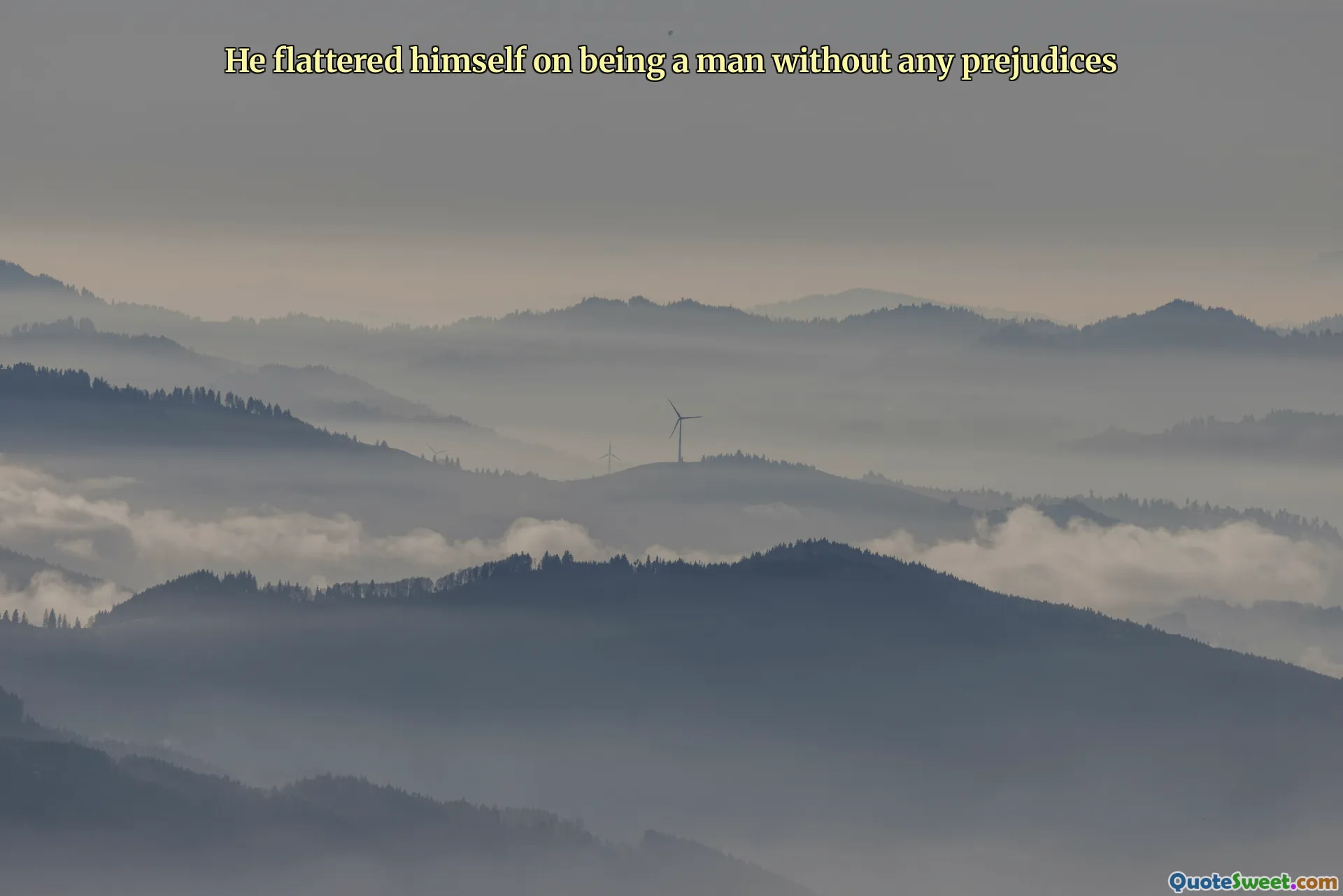
He flattered himself on being a man without any prejudices
This quote highlights a common human tendency to believe oneself to be open-minded and free from biases, which often is an illusion. Many individuals pride themselves on their objectivity and fairness, perceiving themselves as beyond petty prejudices. However, the very act of labeling oneself as 'without prejudices' can be indicative of a blind spot; it may prevent genuine self-examination and growth. It raises questions about the nature of prejudice: is it always overt and intentional, or can it be subconscious and unrecognized? Often, people unconsciously harbor biases that they are unaware of, and assuming oneself to be entirely free from such influences can hinder personal development. Moreover, this self-flattery might lead to dismissing feedback or perspectives that challenge one's view, creating an echo chamber of perceived virtue. Recognizing the subtle presence of biases requires humility, introspection, and a willingness to confront uncomfortable truths about oneself. True openness involves acknowledging our prejudices and actively working to mitigate their influence, rather than claiming their absence outright. This quote serves as a reminder that humility and continuous self-awareness are essential in the journey toward genuine fairness and understanding in a diverse world.






